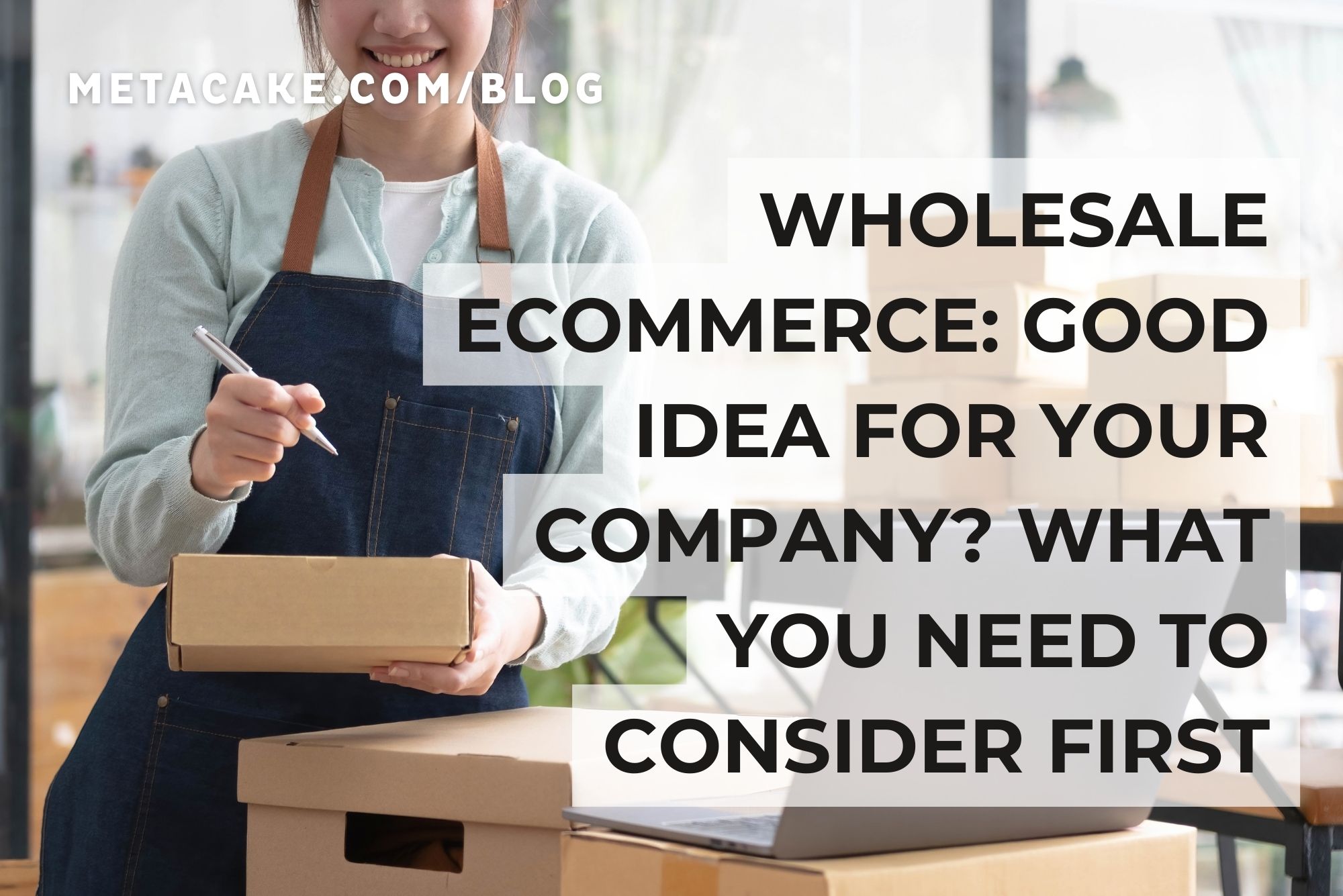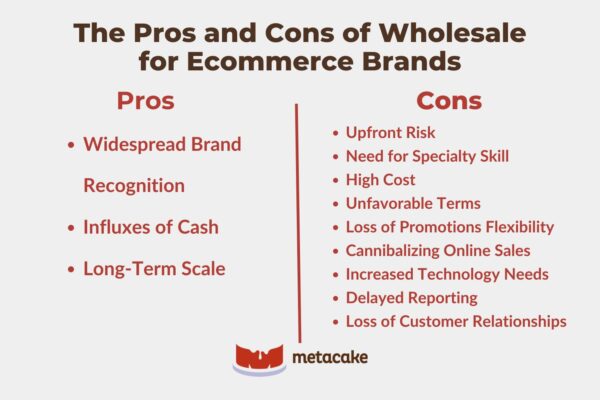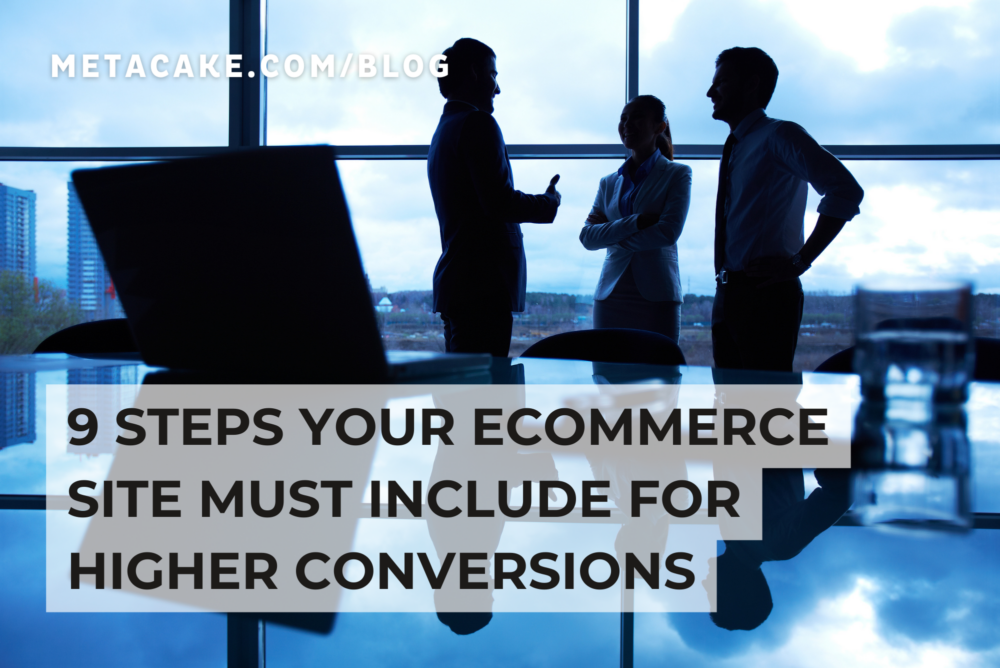
Wholesale eCommerce: Good idea for your company? What You Need to Consider First
Wholesale can be a great channel for ecommerce businesses… but it can also really hurt those who aren’t ready for it.
For growing ecommerce companies, the opportunity to start selling wholesale can be enchanting. It’s easy to get swept up in the excitement of imagining your product on big box retailer shelves.
But think twice before you make this move.
Adding a wholesale channel to your ecommerce business not only involves a lot of risk, it also requires a ton of investment. To do wholesale well, you need a very specific skill set — one you may not realize is missing until you’re way down the rabbit hole.
So, before you go all in with a big box retailer, check out the pros and cons below to determine whether wholesale is a good fit for your ecommerce brand.

The Pros and Cons of Wholesale for Ecommerce Brands
With the above cautions in mind, wholesale offers some legitimate benefits for ecommerce stores with the right skill set and infrastructure. Let’s look at the big three:
1. Widespread Brand Recognition
As a growing ecommerce brand, you can only get in front of so many people through your array of advertising. Getting your product on the shelves of a big box retailer guarantees wider brand recognition that would be difficult to achieve so quickly online.
2. Influxes of Cash
Retailers place huge wholesale orders, which provide ecommerce businesses with periodic large influxes of cash. (But don’t forget about the cash out the door to build up your inventory to fill these orders.)
3. Long-Term Scale
The wholesale channel scales well over time as you get into additional retail stores.
The Downsides of Wholesale for Ecommerce Brands
Though the above benefits call alluringly to the ecommerce business owner’s soul, wholesale has some serious downsides to check that siren song.
Here are nine reasons wholesale (usually) isn’t the best idea for fast-growing ecommerce companies.
1. Upfront Risk
Wholesale requires some significant upfront cost to 1) build up your inventory (often with specialized packaging requirements), 2) design and distribute displays, and 3) build out technology to manage your wholesale channel (with no guarantee your products will sell). This is especially concerning if you don’t have a favorable buy-back clause.
2. Need for Specialty Skill
Building and managing a wholesale channel over time is a skill. Getting into stores is step one, but getting stores to merchandise your products well is an ongoing effort.
You likely aren’t the best person to manage this. You’ll need to hire someone (in-house or consulting) to manage it for you — someone who has the relationships and experience to do it well.
3. High Cost
This is similar to risk, but with a slightly different lens. Adding a wholesale channel to an ecommerce business involves a LOT of cost, so you’ll need to make sure you have the cash on hand to invest in it properly.
4. Unfavorable Terms
If you’re a new or relatively unknown brand, you simply don’t have the clout to negotiate great terms with a big box retailer. They’ll try to include an exclusivity clause that limits you to their chain, or you’ll have a buy-back clause that requires you to purchase back merchandise that doesn’t sell within a predetermined period. This latter clause alone can send companies into debt and out of business.
We recommend waiting to pursue the wholesale channel until your ecommerce business has enough brand equity to negotiate better terms.
5. Loss of Promotions Flexibility
Flexibility or agility is arguably the number one benefit of your DTC ecommerce channel, but getting in with a big box retailer can limit this. Retailers often require advance notice of any sale in your store so they can run the same promotion concurrently. If you violate this, you have to pay them back for their lost sales.
Mature companies can manage these terms to their benefit, but wholesale conditions like this often stunt the growth of young ecommerce businesses.
6. Cannibalizing Online Sales
Ecommerce companies that open a big box wholesale channel risk cannibalizing their own online sales.
7. Increased Technology Needs
Big box retailers are used to working with well-oiled machines. They expect easy wholesale ordering with a seamless experience. Otherwise, the entire process becomes incredibly difficult and burdensome for you.
8. Delayed Reporting
In ecommerce, reporting is immediate and attribution is easy. You know how your marketing efforts are performing in real time.
Reporting from your wholesale channel, however, is significantly delayed. It’s something of a black box most of the time, posing challenges for understanding and interpreting data in a new way.
9. Loss of Customer Relationships
In wholesale, ecommerce businesses lose communication with customers. Even if they buy your product, those customers are now the retailer’s customers.
Owning the customer is THE KEY to building a successful brand, so this is a big one. The brand that owns the customer relationship wins, so consider this carefully.
Wholesale for Ecommerce Brands: Final Thoughts
In essence, when you sell wholesale, you lose autonomy and access to your customers, so make sure the upside outweighs these negatives.
Don’t get us wrong. The wholesale channel, when done right, can be great for ecommerce businesses. We always look at implementing wholesale for any brand we work with as part of a long-term strategy. But the timing has to be right, and it has to be implemented correctly — or it could kill your business.
The key is leverage. Be patient. Wait to move into wholesale until your ecommerce business is booming, your brand is well-known and loved, you have cash in the bank, and retailers are knocking down your door begging to carry your product.



